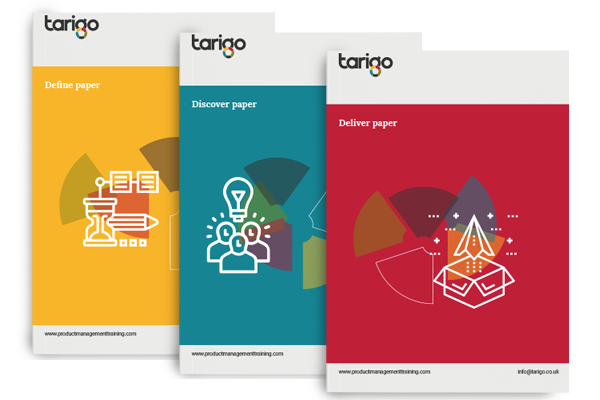Blogs > Product Management Training
Prime Ministers and Product Managers have a lot in common when it comes to AI strategy
By Louise Cantrill - Head of Consultancy
-1736941813.png)
Prime Ministers and
Product Managers (PMs) have more in common than initially meets the eye when it
comes to AI strategy. Just as a PM meticulously defines user needs, the Prime
Minister must clearly articulate the desired outcomes for citizens. What are
the key metrics of success? How will we measure the impact on productivity,
healthcare outcomes, or citizen satisfaction?
While 2025 may not be a single, defining "year of AI," it's undoubtedly a year where AI will play an increasingly significant role in our lives and societies. This week in the UK, AI hit the headlines as our Prime Minister (PM) Keir Starmer announced a new AI policy and strategy. Just like many PMs (Product Managers) we meet, the UK government also aims to harness the power of AI for economic growth, and societal benefit in the years to come.
The Prime Minister
states he wants to: Make the UK an AI superpower, and boost economic growth: By
investing in research, developing a skilled workforce, and fostering
innovation. He also wants to use AI for good: To improve public services,
tackle societal challenges – from climate change to optimizing energy grids and
developing more sustainable transportation systems – and drive economic growth
while ensuring responsible AI development.
The UK Prime
Minister's vision for AI through transforming public services is emotive:
·
A future where AI
automates routine tasks, freeing up public sector workers to focus on more
meaningful, human-centred interactions.
·
Imagine teachers
leveraging AI tools for personalized learning plans, reducing lesson planning
time and tailoring education to individual student needs.
·
Healthcare
professionals provide personalised medicine based on individual DNA,
accelerating the fight against disease.
And there is a three-pronged strategy to the vision: Compute, Data, and Skills with a dedicated 'ten-year compute plan' focusing on investing in cutting-edge infrastructure like supercomputers and data centres: Data will be the lifeblood: a proposed 'National Data Library' being a significant step. A world-class AI talent pool: attracting top international talent through streamlined visa routes and investing heavily in AI education and training programs at all levels, whilst fostering a culture of innovation and entrepreneurship.
The government's
vision hinges on turning AI into an 'Engine for the UK Economy.' Attracting and
retaining leading AI companies is crucial. The UK has already seen significant
investment from major AI players, and this strategy aims to further incentivize
such investment. All great so far!
However, the economic realities cannot be ignored. Public concerns about the cost of this ambitious undertaking remain, and while the government emphasized the long-term economic benefits, questions remain about the short-term impact on taxpayers and the potential need for increased public spending. This challenge of balancing benefits with costs will sound familiar to any seasoned PM.
Just as a successful PM builds a roadmap with clear milestones, prioritizes features, and constantly iterates based on user feedback, the government needs to establish clear milestones, regularly evaluate progress, and be prepared to adjust the strategy based on real-world outcomes. For example, how will the government measure the impact of AI on reducing waiting times for healthcare appointments or improving educational outcomes?
Furthermore, a responsible PM ensures their product is user-friendly, ethical, and safe. Similarly, the government must prioritize the ethical development and deployment of AI. This includes addressing concerns about bias, job displacement, and the potential misuse of AI.
The Prime Minister faces a daunting task, but with careful planning, strong execution, and a focus on the long-term vision, the UK can successfully navigate the AI revolution and reap the benefits for generations to come. Ultimately, the true measure of success will be its impact on people's lives. Will it lead to better jobs, improved healthcare, and a more equitable society? These are the questions that must guide every decision.

My advice to all PMs (Prime Ministers to Product Managers) would be to start with the Strategyzer Value Proposition Canvas.
The Strategyzer
Value Proposition Canvas is a strategic tool that helps us identify and clarify
the value proposition by focusing on the needs and desires of the target
customers. It is split into two main sections: the customer profile and the
value map.
Here is how to
complete the Strategyzer Value Proposition Canvas:
1.
Start with the
customer profile
a.
Customer jobs:
identify tasks or needs the customer aims to fulfil.
b.
Pains: List
frustrations, risks or obstacles customer face.
c.
Gains: Define
outcomes or benefits that would satisfy customers.
2.
Define the value
map
a.
Products &
services: List offerings that help customers compete their jobs.
b.
Pain relievers:
Explain how your offerings alleviate the customer pains.
c.
Gain creators: Show
how your offerings produce desire customer benefits.
3.
Align & adjust
a.
Ensure pain
relievers match customer pains and gain creators match gains. Adjust to enhance
the alignment.
4.
Test & refine
a.
Test with real
customers to validate that your solution addresses their jobs, pains and gains.
Use feedback to improve your value proposition.
To access the Strategyzer Value Proposition Canvas click here: https://www.strategyzer.com/library/the-value-proposition-canvas
Here is a populated
canvas for coffee drinkers:



Product Management Bootcamp and Pro-Series
Our Bootcamp training is the most complete course for product management, taking you from ideation through to delivery and iterative improvements.
About Tarigo
We enable product managers to drive success.Established in 2003, Tarigo has built an enviable reputation for delivering high-quality training and consultancy solutions to product managers throughout Europe and the USA.
Our fresh approach to product management training has proven incredibly successful and our capability to adapt to clients’ training and consultancy needs has only helped to further this success.


